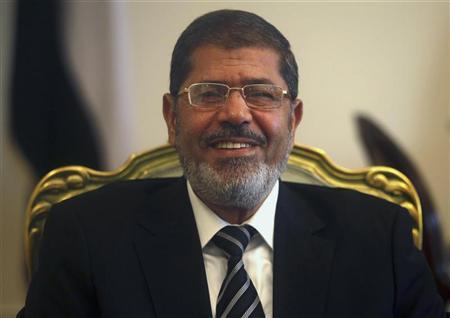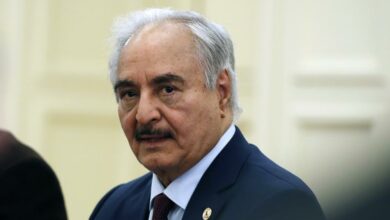
Egypt's Islamist president, Mohamed Morsy, overreached by giving himself broad powers and trying to ram through a new constitution without sufficient consultation, analysts say.
His abrupt annulment on the weekend of a November decree putting himself above judicial review — after weeks of sometimes bloody protests at his perceived "power grab" — was reluctant recognition of that.
But even then, it came only after the army stepped in to demand negotiations to solve the country's dire crisis.
And Morsy's referendum on the draft constitution is still scheduled for next Saturday, leaving open the prospect of further upheaval and division.
Wayne White, a former senior US State Department intelligence official now a policy expert with Washington's Middle East Policy Council, said the involvement of the powerful military was key to Morsy's concession.
Perception that opposition had grown to Morsy's rule likely pushed the generals to "inform him that they cannot continue to keep the peace and that he should make serious concessions to the opposition," he said.
A demand by the army on Saturday for Morsy and the opposition to open dialogue to avert a "disastrous" worsening of the crisis — which the military said it "will not allow" — was a warning to both sides, observers said.
It was addressed "as much to the Muslim Brotherhood as to the liberals [the opposition]," Hassan Nafaa, an Egyptian political watcher and columnist, told AFP.
Analysts agreed that Morsy, elected with a slim mandate in June, would probably see the referendum adopt the constitution drafted mostly by his Islamist allies, in no small part thanks to his Muslim Brotherhood.
But they warned the effects of that would be damaging.
"The Muslim Brotherhood believes that it has majority support so it can win the constitutional referendum," said Eric Trager, an analyst at the Washington Institute for Near East Policy.
If that occurred, it would "set up the country for prolonged instability," he warned.
Morsy, still inexperienced in power, saw himself and the Brotherhood as the sole best defenders of Egypt's fledgling democracy post-Hosni Mubarak, Egypt's strongman for 30 years who was toppled early last year, according to analysts.
"Morsy's miscalculation … was to think that everyone understood the results of the Egyptian elections the way the Brothers did," Steven Cook wrote in the Foreign Affairs magazine published by the American Council on Foreign Relations.
"In other words, they gave him and his party a mandate to rule with little regard to those who might disagree."
But Yasser el-Shimy, an Egypt-based analyst for the International Crisis Group, judged that the Brotherhood's trench mentality stemmed from "all the attacks against it" — both in the media and physically — against its members and offices.
Morsy saw an initial outreach to the opposition spurned, so felt he was right in trying to bulldoze ahead, Shimy said.
Circumstances forced the last-minute concessions, but "whether they will be enough for hardline opposition figures remains to be seen."
The anti-Morsy mood in Cairo's streets in recent days has swung close to the revolutionary zeal seen during Mubarak's ouster in early 2011.
Bringing both camps back to a democratic forum, with its inevitable compromises and horse-trading requires overcoming ideological stands and a mutual mistrust that has been hardened by the weeks of confrontation.
Shadi Hamid of the Brookings Doha Center said in a paper on the Brookings Institute website that the crisis "isn't really about Morsy and his surprise decree" but rather about a more fundamental difference: Should Egypt become more Islamist or maintain secular, more neutral underpinnings?"
"The [draft] constitution has a few Islamically flavored articles, but for the most part it is a mediocre — and somewhat boring — document, based as it was on the similarly mediocre 1971 constitution," Hamid said.
"Islamists and non-Islamists may hate each other, but, on substance, the gap isn't currently as large as it might be … In the longer run, however, the consensus that so many seem to be searching and hoping for may not actually exist."




